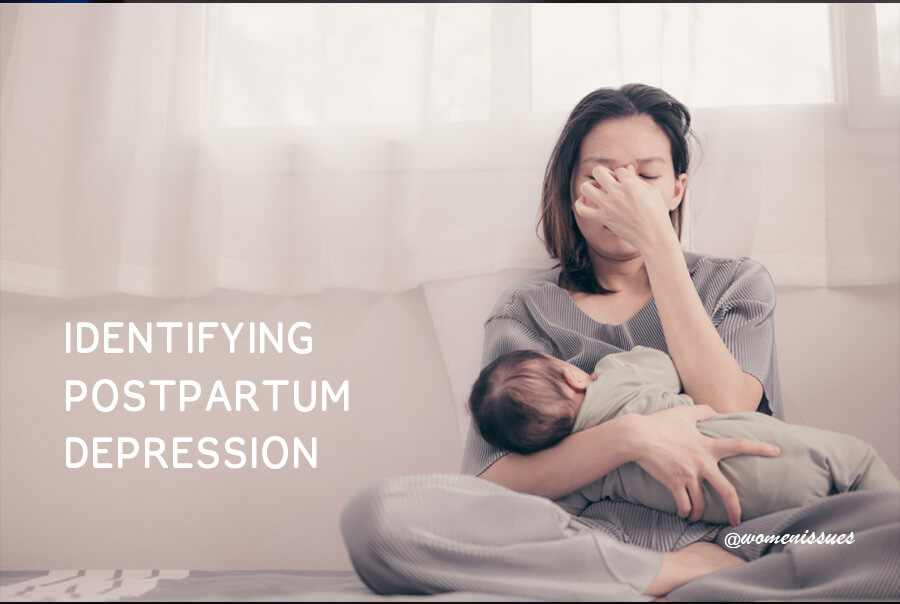Postpartum depression is also known as postnatal depression is the kind of depression that occurs after childbirth. Postpartum depression (PPD) is a common reality and knowledge is needed for those who care for new mothers to know about it. Especially in our African society because often when it happens they will label the person very harshly and even blame them for taking out stress on an innocent child. If it is left untreated it may last longer and treatment depends on severity. There’s a greater risk of developing major depression later on in life for those who develop PPD.
PPD can start earlier or later during pregnancy or a few weeks after childbirth up to a period of a year. PPD is more intense and it is not baby blues, baby blues will fade on their own within few days to at least two weeks.
Signs and symptoms of baby blues
- Mood swings
- Seeping problem
- Appetite troubles
- Feeling irritated and overwhelmed
- Sadness and crying
- Anxiety
Baby blues can be easily overcome by getting yourself enough rest or sleep.
How is PPD diagnosed?
A doctor will do screening or blood tests to check for an underactive thyroid or other underlying illnesses to determine what contributes to your symptoms. When you talk to your doctor about your thoughts and feelings and based on the symptoms you have they can be able to identify if it is only baby blues or PPD. Useful treatment can be created if you share your symptoms openly and honestly without feeling embarrassed or shameful. Remember it is not your fault and you need to get treatment to get better or to avoid it becoming a chronic depression.
Signs & symptoms of postpartum depression
- Severe mood swings
- Difficulty bonding with your baby
- Fear of not being a good mother
- Thoughts of harming either your baby or yourself
- Suicidal thoughts
- Panic attacks
- Too much or lack of sleep
- Restlessness and hopelessness
- Anxiety
- Intensified anger
- Excessive crying
- Feeling worthless
- Inability to think clearly
- Withdrawing from everyone
- Lack of interest in most activities
- Eating a lot or loss of appetite
- Fatigue
- Difficulty making decisions
- Decreased libido
How is PPD treated?
A treatment plan is created for individuals based on the severity of the signs and symptoms. Should you have an underactive thyroid, other illnesses or mental issues that contribute, the doctor will then have to either treat or refer you to the relevant professional to treat those conditions first. Treatment can be in a form of psychotherapy, medication, or both.
Psychotherapy
this is the form of therapy that offers mental health counseling where you talk through your feelings with a mental health professional, a psychologist, or a psychiatrist. You can go through therapy with a partner or with one or more family members should you feel that can help.
How can it help?
- It will assist you in finding better ways of dealing with problematic situations in a positive manner
- It will also assist you in setting realistic goals
- It will assist you in finding ways of coping better with your feelings
Medication
in this situation, a doctor recommends anti-depressants taking into consideration if you are breastfeeding or not. We know how certain medications are not allowed during breastfeeding as medication enters breast milk as well. The doctor will specifically recommend the correct anti-depressant, however, most of them used are known to have less risk of side effects for your baby.
How can it help?
- It assists in keeping you calm
- It suppresses the negative feelings and thoughts
- It stabilizes your mood
Please note you cannot stop taking treatment the moment you feel better because that may lead to relapse. Postpartum depression will usually improve with the correct treatment. Young fathers who are experiencing relationship problems or that may have financial problems may also experience postpartum depression. New fathers can have the same symptoms of PPD as mothers, it does not exclude them. Those who have a history of depression are more at risk.
When is the time to go see the doctor?
- If you experience any of the signs and symptoms and they get worse
- If the symptoms don’t go away after two weeks
- If you can’t do what needs to be done for the day and it is hard to take care of the baby
- If you have harmful thoughts towards you and the baby
What can be the risk factors?
- Unplanned or unwanted pregnancies
- Relationship/marital problems
- Age at the time of pregnancy
- Lack of support system
- History of depression or PPD after the previous pregnancy
- If you have bipolar disorder
- Complications during pregnancy
- Giving birth to twins or more
- Financial struggles
Other causes
- Self-image – feeling less attractive due to changes in your body
- Coping – feeling that you have lost control of your life
- Loss of sleep – taking care of a newborn baby can take away much of your sleep
- Hormones – after giving birth, the drastic drop of estrogen and progesterone play a role
Can PPD be prevented?
You stand a chance to try and prevent it if you know you have a history of depression
*by telling your doctor about your pregnancy as soon as you find out you are pregnant.
*If you are planning to become pregnant, tell your doctor.
*OR if you are pregnant and you have signs anytime during your pregnancy, don’t hesitate to tell your doctor.
The doctor will be able to monitor you closely through pregnancy and after the baby is born. PPD can cause a lot of problems for you and can affect your child’s development and they are likely to have emotional and behavioral problems.
There is another type of postpartum depression called postpartum psychosis. Postpartum psychosis is a very serious mental illness that needs immediate treatment. Women who suffer from postpartum psychosis are often hospitalized because and they run a risk of hurting others or themselves and they almost need medication all the time.
postpartum psychosis signs and symptoms
- Hallucinations, disorientation and delusions
- Paranoia
- Confusion
- Insomnia
- Anger
- attempting to harm yourself and your baby
- Excessive agitation
Reach out to someone should you have a problem to consult a doctor so they can be with you for courage throughout the process. You are not alone, it can affect any woman. Giving birth can result in an unexpectedly powerful emotional rollercoaster. You can have one moment of pure joy and fear at once, you can be excited and feel anxious.
**NEVER UNDERESTIMATE THE POWER OF BRINGING A SOUL ON EARTH**


No Comment